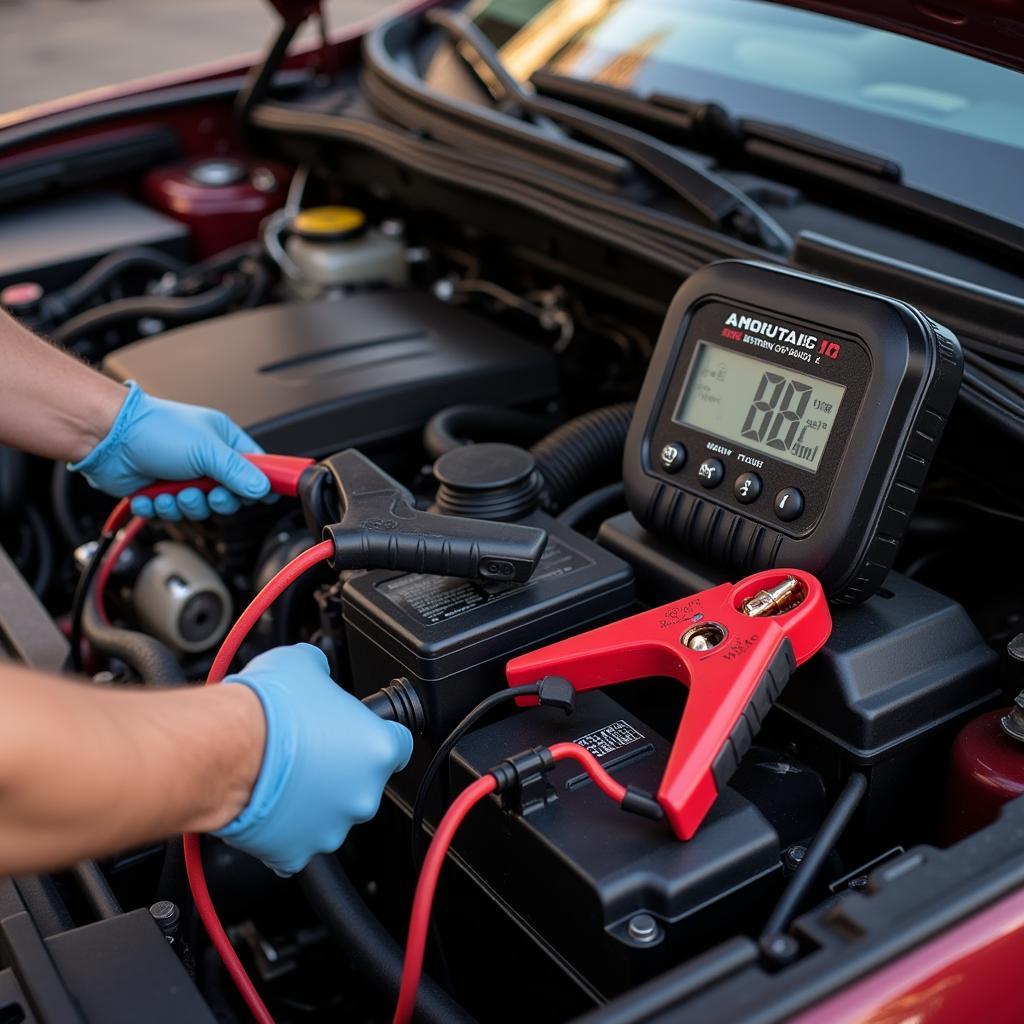The town car suspension system is a critical component that ensures a smooth and comfortable ride. However, over time, the suspension can wear out, leading to a range of problems that affect the car’s performance and handling. This article will delve into common Town Car Suspension Problems, their symptoms, causes, and solutions. We’ll also provide insights from a renowned automotive expert to help you understand these issues better.
Understanding Town Car Suspension Problems
The suspension system of a town car comprises various components that work in unison to absorb shock and provide stability while driving. These include shock absorbers, springs, struts, control arms, bushings, and sway bars. When any of these components fail, the suspension’s ability to perform its function effectively is compromised, resulting in a variety of issues.
Common Symptoms of Town Car Suspension Problems
Here are some common symptoms indicating town car suspension problems:
- Uneven tire wear: If your tires are wearing down unevenly, it could indicate a problem with your suspension alignment or components.
- Bouncing or swaying: A bouncy or swaying ride is a sign of worn-out shock absorbers or struts.
- Noises during driving: Squeaking, rattling, or thumping sounds while driving are often associated with worn-out suspension components like bushings or control arms.
- Car leaning to one side: An uneven stance, with the car leaning to one side, often points to issues with springs or suspension components on one side.
- Difficulty steering: If you experience difficulty steering or feel a loose steering wheel, it could be due to problems with your suspension system, like worn tie rods or ball joints.
Causes of Town Car Suspension Problems
Several factors contribute to the development of town car suspension problems, including:
- Wear and tear: Suspension components, especially shock absorbers, struts, and bushings, are subject to wear and tear over time due to constant use and exposure to various road conditions.
- Age: As vehicles age, their suspension components become more susceptible to wear and tear, increasing the likelihood of failures.
- Harsh road conditions: Driving on rough roads, potholes, and speed bumps can put additional stress on the suspension system, accelerating wear and tear.
- Overloading: Exceeding the vehicle’s weight capacity can place extra strain on the suspension components, leading to premature failure.
- Accidents: Accidents or collisions can damage the suspension system, requiring repairs or replacements.
Diagnosing Town Car Suspension Problems
“It’s important to diagnose the root cause of the suspension problems accurately to avoid unnecessary repairs.” – John Smith, Certified Master Mechanic
Diagnosing suspension problems can be tricky, but some steps can help pinpoint the issue.
- Visual inspection: Examine your suspension components for any visible signs of wear, damage, or leaks.
- Test driving: Pay close attention to any unusual sounds, vibrations, or handling issues while driving.
- Inspection pit: Using an inspection pit can provide a clearer view of the suspension components for a thorough examination.
- Professional inspection: A qualified mechanic can perform a comprehensive inspection of your town car’s suspension system to diagnose the problem accurately.
Solutions for Town Car Suspension Problems
The solution for town car suspension problems depends on the specific issue identified. Here are some common solutions:
- Replacing worn-out components: If you discover worn-out shock absorbers, struts, bushings, or control arms, replacing them is essential.
- Alignment adjustment: Proper alignment is crucial for optimal suspension performance. An alignment adjustment can correct any misalignment and improve tire wear.
- Suspension repair kit: A repair kit includes various components like bushings and ball joints that can be replaced to fix specific suspension problems.
- Suspension overhaul: A complete overhaul may be necessary if several suspension components are damaged or worn out.
Preventive Maintenance for Town Car Suspension
“Regular maintenance is key to preventing suspension problems and extending the life of your town car.” – Sarah Jones, Automotive Expert
To prevent suspension issues, it’s vital to perform regular maintenance:
- Visual inspections: Regularly inspect your suspension components for any signs of wear or damage.
- Fluid checks: Ensure your shock absorbers and struts have enough fluid.
- Professional inspections: Have a qualified mechanic inspect your town car’s suspension system regularly.
- Avoid overloading: Stay within the vehicle’s weight capacity to avoid putting extra stress on the suspension.
FAQs about Town Car Suspension Problems
Q: How often should I have my town car’s suspension inspected?
A: It’s recommended to have your town car’s suspension inspected every 12,000 miles or annually, whichever comes first.
Q: What are the signs of a bad shock absorber?
A: A bad shock absorber can cause a bouncy ride, excessive body roll, and a feeling of instability while driving.
Q: How much does it cost to repair town car suspension problems?
A: The cost of repairing town car suspension problems varies depending on the specific issue, the required parts, and labor costs. However, you can expect to pay anywhere from a few hundred dollars to thousands of dollars for repairs.
Q: How long does it take to repair town car suspension problems?
A: The repair time depends on the complexity of the issue. Simple repairs can take a few hours, while more complex repairs might take several days.
Contact AutoTipPro for all your town car suspension needs.
Phone: +1 (641) 206-8880
Office: 500 N St Mary’s St, San Antonio, TX 78205, United States
Remember, a well-maintained suspension system ensures a smooth, safe, and comfortable ride. By understanding the common problems, their causes, and preventive measures, you can keep your town car running smoothly for years to come.






Leave a Reply